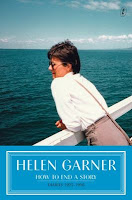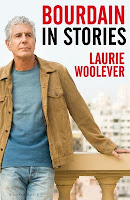NEW RELEASES
The Books of Jacob by Olga Tokarczuk (translated by Jennifer Croft) $48
In the mid-eighteenth century, as new ideas begin to sweep the continent, a young Jew of mysterious origins arrives in a village in Poland. Before long, he has changed not only his name but his persona; visited by what seem to be ecstatic experiences, Jacob Frank casts a charismatic spell that attracts an increasingly fervent following. In the decade to come, Frank will traverse the Hapsburg and Ottoman empires, throngs of disciples in his thrall as he reinvents himself again and again, converts to Islam and then Catholicism, is pilloried as a heretic and revered as the Messiah, and wreaks havoc on the conventional order, Jewish and Christian alike, with scandalous rumours of his sect’s secret rituals and the spread of his increasingly iconoclastic beliefs. The Nobel Prize in Literature laureate writes the story of Frank through the perspectives of his contemporaries, capturing Enlightenment Europe on the cusp of precipitous change, searching for certainty and longing for transcendence.
"A visionary novel. Tokarczuk is wrestling with the biggest philosophical themes: the purpose of life on earth, the nature of religion, the possibility of redemption, the fraught and terrible history of eastern European Jewry. With its formidable insistence on rendering an alien world with as much detail as possible, the novel reminded me at times of
Paradise Lost. The vividness with which it’s done is amazing. At a micro-level, she sees things with a poetic freshness.
The Books of Jacob, which is so demanding and yet has so much to say about the issues that rack our times, will be a landmark in the life of any reader with the appetite to tackle it." —Marcel Theroux,
Guardian
>>The rise and fall of a messiah. The Dawn of Everything: A new history of humanity by David Graeber and David Wengrow $75
This remarkable book challenges our received narratives of historical determinism, narratives that were devised in the eighteenth century as a conservative reaction to critiques of European culture inherent in the Indigenous cultures then entering European awareness. If we unshackle ourselves from thee preconceptions about human 'progress' and look more closely at the evidence, we find a wide array of ways in which humans have lived with each other, and with the natural world. Many of these can provide templates for new forms of social organisation, and lead us to rethink farming, property, cities, democracy, slavery, and civilisation itself.
>>All figured out.
Essays: Two by Lydia Davis $55"A writer as mighty as Kafka, as subtle as Flaubert, and as epoch-making, in her own way, as Proust." —Ali Smith
Lydia Davis gathered a selection of her non-fiction writing for the first time in 2019 with Essays: One. Now, she continues the project with Essays Two, focusing on the art of translation, the learning of foreign languages through reading, and her experience of translating, amongst others, Flaubert and Proust, about whom she writes with an unmatched understanding of the nuances of their styles.
>>Read Thomas's review of the first volume. "A teacher asked me a question, and I opened my mouth as a sort of formality but closed it softly, knowing with perfect certainty that nothing would ever come out again." Ruby gives up talking at a young age. Her mother isn't always there to notice; she comes and goes and goes and comes, until, one day, she doesn't. Silence becomes Ruby's refuge, sheltering her from the weather of her mother's mental illness and a pressurised suburban atmosphere.
A woman metamorphoses into a giant slug; another quite literally eats her heart out; a wasp falls in love with an orchid; and hair starts sprouting from the walls. These stories slip and slide between genres—from video games to fan fiction, body horror to choose-your-own-adventure—as characters cycle through giddying changes in gender, physiology, species, and identity. Collapsing boundaries between bodies and forms, these fictions interrogate the visceral, gross, and absurd.
"This book is fucking weird." —Brit Mandelo
Being You: A new science of consciousness by Anil Seth $37
Consciousness is the great unsolved mystery in our scientific understanding of the brain. Somewhere, somehow, inscribed in the brain is everything that makes you you. But how do we grasp what happens in the brain to turn mere electrical impulses into the vast range of perceptions, thoughts and emotions we feel from moment to moment? Anil Seth charts the developments in our understanding of consciousness, revealing radical interdisciplinary breakthroughs that must transform the way we think about the self. Drawing on his original research and collaborations with cognitive scientists, neuroscientists, psychiatrists, brain imagers, virtual reality wizards, mathematicians and philosophers, he puts forward a new theory about how we experience the world that should encourage us to view ourselves as less apart from and more a part of the rest of nature.
"Beautifully written, crystal clear, deeply insightful." —David Eagleman
The Provensen Book of Fairy Tales illustrated by Alice Provensen and Martin Provensen $48
A long-out-of-print classic first published 50 years ago, The Provensen Book of Fairy Tales is a treasury of their illustrations accompanied by fairy tales from authors such as A. A. Milne, Hans Christian Andersen, and Oscar Wilde. Republished and set to become a favourite 'special book' for another generation.
Benjamin's Crossing by Jay Parini $23
Walter Benjamin is dead. One of the radiant minds of the twentieth century has been snatched away by death in a small town on the border between Spain and France. His thousand-page manuscript, carried the length of France during his flight from the Nazis, has vanished with him, never to be recovered. Jay Parini's novel traces Benjamin's steps back through time, from the salons of Berlin to the winding roads of Catalonia. A tale of escape and pursuit, Benjamin's Crossing dramatises a poignant peripheral episode of the Holocaust.
All That She Carried: The journey of Ashley's sack, a Black family keepsake by Tiya Miles $60
In 1850s South Carolina, an enslaved woman named Rose faced a crisis, the imminent sale of her daughter Ashley. Thinking quickly, she packed a cotton bag with a few precious items as a token of love and to try to ensure Ashley's survival. Soon after, the nine-year-old girl was separated from her mother and sold. Decades later, Ashley's granddaughter Ruth embroidered this family history on the bag in spare yet haunting language—including Rose's wish that "It be filled with my Love always." Ruth's sewn words, the reason we remember Ashley's sack today, evoke a sweeping family story of loss and of love passed down through generations. A remarkable book, using an object to uncover histories not otherwise recorded. US National Book Award winner.

Tells the story of our relationship with the deep sea how we imagine, explore and exploit it. It captures the golden age of discovery we are currently in and looks back at the history of how we got here, while also looking forward to the unfolding new environmental disasters that are taking place miles beneath the waves, far beyond the public gaze.
Requiem for a Fruit by Rachel O'Neill $25
The prose poems in this book cast a slant lens on the everyday, opening up a world of possibilities. With imagined and real dialogue, characters converse and live. O'Neill covers topics from love to interstellar travel, from the domestic to the absurd. Here are dowagers and dogs, a robot mother, husbands hiding behind fire trucks, and families made of stone. The landscape they populate is without reason, yet full of fruit.
How to End a Story: Diaries, 1995—1998 by Helen Garner $37
Helen Garner's third volume of diaries is an account of a woman fighting to hold on to a marriage that is disintegrating around her. Living with a writer—Murray Bail—who is consumed by his work, and trying to find a place for her own spirit to thrive, she rails against the confines while desperate to find the truth in their relationship—and the truth of her own self.
A rreimagining of a plague outbreak in 1930s Moscow, inviting parallels with our pandemic-stricken times. Rudolf Maier, a young microbiologist working on a plague vaccine, is summoned to Moscow to deliver a progress report to his superiors. Inadvertently, he carries the virus with him from the lab. When his illness is discovered, the state machinery turns with terrifying efficiency, rounding up dozens of people. But for many, the distinction between this enforced, life-sparing isolation and the constant churn of political surveillance and arrests is barely detectable, and personal tragedy is not completely averted. Based on real events in the Stalinist Russia of the 1930s, this novel, written in the late 1970s and rediscovered by the author during lockdown — and never before translated into English — chimes with uncomfortable truths about the current Russian regime and the pandemic crisis. Includes a new preface by the author.

by Nicole Titihuia Hawkins $25
With poems centred around whanau, mana wahine, and love, Whai explores what it means to be Maori in a colonised space. These poems are playful, staunch, vulnerable and at times hilarious.

$28
This issue features Lindsey Hilsum, author of the award-winning In Extremis, on cholera in Hutu refugee camps; Ian Jack on the toxic slag heaps of Glasgow and the aristocratic lives built on them; memoir by Vidyan Ravinthiran and Rory Gleeson; and poetry by Jason Allen-Paisant and Anthony Anaxagorou. Plus, new fiction from Paul Dalla Rosa, shortlisted for the 2019 Sunday Times Audible Short Story Award, and Gwendoline Riley, author of First Love.
Granta 156: Interiors $28
Interiors explores the spaces and systems that contain and control us. Featuring Chris Dennis on Ghislaine Maxwell, Debra Gwartney on the last days of Barry Lopez and Lynne Tillman on the photographs of Kaitlin Maxwell. Introducing Eva Freeman, Vanessa Onwuemezi, Sara Freeman and Okwiri Oduor.
When the world's largest search engine / social media company merges with the planet's dominant e-commerce site, it creates the richest and most dangerous-and, oddly enough, most beloved-monopoly ever known—The Every. Delaney Wells is an unlikely new hire. A former forest ranger and unwavering tech skeptic, she charms her way into an entry-level job with one goal in mind—to take down the company from within. With her compatriot, the not-at-all-ambitious Wes Kavakian, they look for the company's weaknesses, hoping to free humanity from all-encompassing surveillance and the emoji-driven infantilisation of the species. But does anyone want what Delaney is fighting to save? Does humanity truly want to be free?
Bourdain in Stories by Laurie Woolever $33
The book includes recipes for cakes, slices, pastries and buns - and Baba's golden dumpling cake.
Old Possum's Book of Practical Cats by T.S. Eilot, with illustrations by Julia Sarda $33
Macavity's a Mystery Cat: he's called the Hidden Paw -
For he's the master criminal who can defy the Law.
He's the bafflement of Scotland Yard, the Flying Squad's despair:
For when they reach the scene of crime – Macavity's not there!
A handsome A5 hardback diary printed in colour throughout with a ribbon bookmark and an elastic closure. A week to a view diary containing a new selection every year of forty poems and twelve illustrations from the Faber Archive.





















